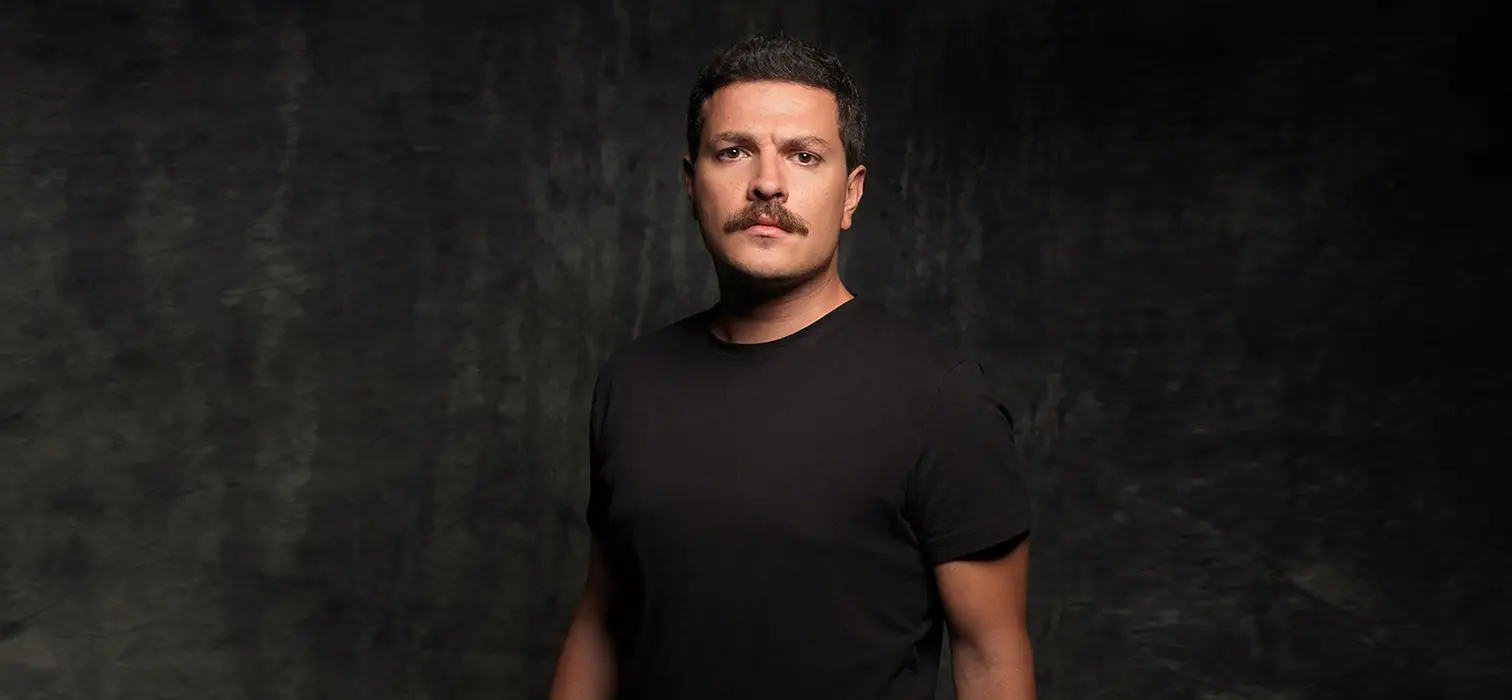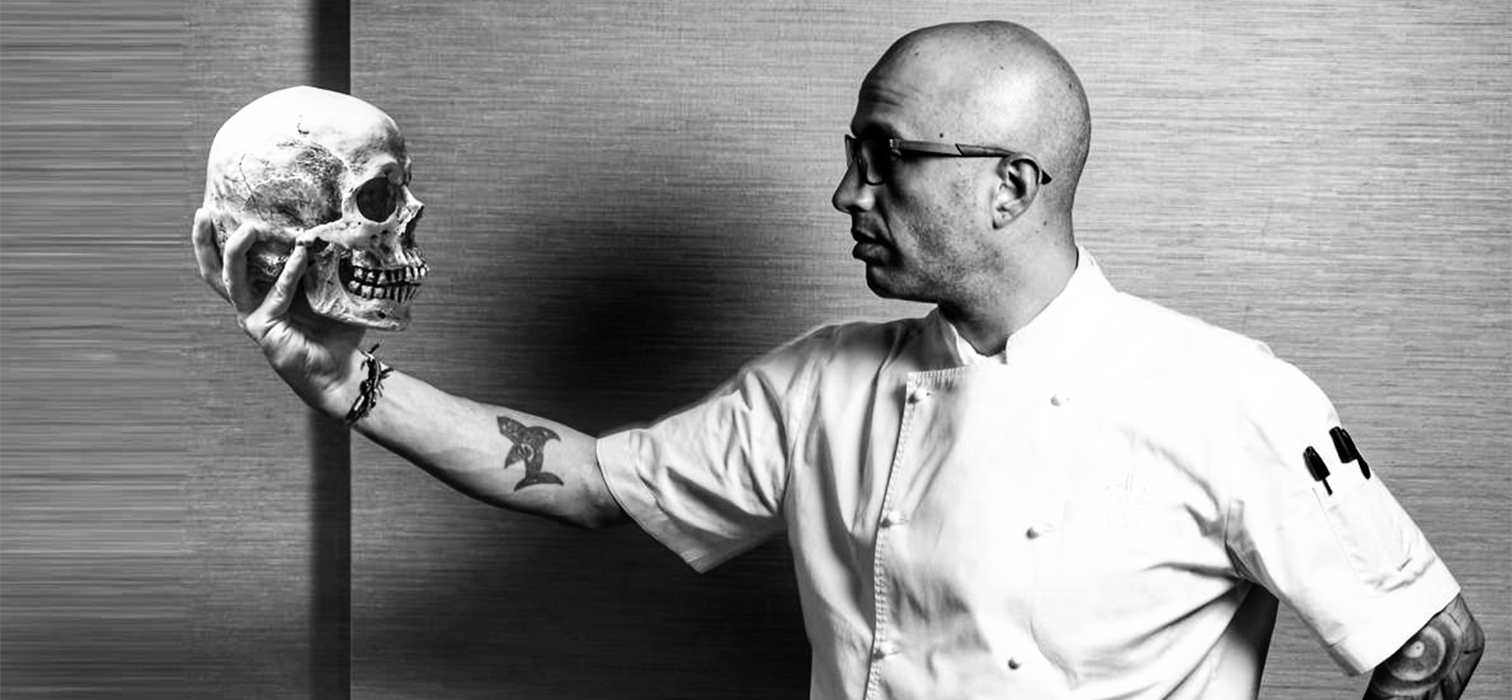

Mehmet Turgut, the “rock star” of photography known for his vibrant inner world and stripped-down lifestyle, is now chasing the magic of analog and the peace of nature.
We haven’t heard from you in a while. Where have you been?
I spent a long stretch living in Indonesia, where I also did photo shoots for several brands I was collaborating with. Over time, I realized how deeply the culture and lifestyle there resonated with me. The love and respect people have for the land, children, and animals genuinely moved me. They hold everything in high regard. And they’re also people who know how to be content with very little, who embrace simplicity—and I’m very much on the same wavelength.
Just look at my home: one bedroom, one living room… that’s all I need. I’ve never dreamed of a lavish life—it doesn’t bring me peace. Bali, in particular, captivated me. The culture, the people—they felt familiar to me. I had a close friend there named Ari who helped with my work. He would often say, “You have a reincarnation here; the island loves you.”
But financially, it’s quite challenging to make a living as a photographer there. People are just managing to survive themselves. Still, I know there will always be a door open for me. I even imagine spending my old age there. For now, I’m in Turkey because there’s still much to do here —and globally— in photography. But Indonesia will always have a piece of my heart.

What drew you to Indonesia? Why there, and not somewhere else?
I’ve traveled to many places around the world, but when I first visited Indonesia four years ago, I felt something I’d never felt anywhere else. You know that rare moment when you step into a place and it just feels right—like you belong? That’s exactly how I felt.
The calm, the serenity, the simple joy of the people truly affected me. Many of them don’t even have shoes on their feet, yet they wear the most genuine smiles. And it’s not just the locals—even the tourists who spend time there eventually absorb that spirit and embrace that simplicity. After a few visits, I realized I had become part of it.


How did time pass for you there?
The days were long since it gets dark early. I’d wake up every morning at 6 a.m. and start my day with a walk. Some days I’d end up at a temple, others at the base of a volcano… On one side, a crater lake; on the other, surfers dancing with the waves. The scenery was stunning.
I already had a community there—friends from Italy, Russia, Spain. In the evenings, we’d gather, enjoy delicious food, and end the day with good conversation and fun.
“I WAS VERY NAUGHTY”
You come from a family of photographers. Was photography always your dream as a child?
I was a very mischievous kid. When people asked, “Why aren’t you studying? Why are you always getting into trouble?”I’d say, “I’m going to be a photographer.” And in the end, I really did become one.
Actually, I was also interested in painting, sculpture, and the plastic arts. I tried my hand at various things in those fields. But after I completed my military service, I thought, “Why not express myself through photography?” I already had a studio and equipment. Once I started expressing my inner world through photographs, everything took off very quickly.

Your rise to fame began with the photos you took after moving to Istanbul. You became somewhat of a ‘rock star’ photographer. Were you surprised by the attention?
Not really. I’m not the kind of person who gets swept away easily. I’m my father’s son. Even if the world ended, I’d just smile and move on. People sometimes ask, “Why don’t we see you around like we used to?” But the truth is, I was never that visible to begin with. It’s just that people noticed me more back then.
Istanbul used to be a more intimate city. You’d see everyone on the streets of Istiklal and Beyoğlu. Music that matched our style played on every corner. We’d go to four or five venues in a single night. It’s not like that anymore. The streets feel tense now; people are anxious.
I think my photos also stirred people’s curiosity. They wanted to know who was behind the lens. For instance, Taylan Biraderler… They never gave interviews to anyone. But I invited them to be featured in 46 Magazine, and they kindly accepted. They said, “We usually don’t do this, but we were curious about you.” We’re still in touch today.
Another memory is with Ömer Faruk Sorak. The first time he came to my studio, I showed him my showreel. The moment he watched it, he called Yılmaz Erdoğan and said, “Yılmaz, I’ve found something! Come immediately!” That something was me. But that something wasn’t just for that day. It was already something back in Ankara—and it still is today. There’s no other way. The path is clear: create art, exhibit it, and keep going.


You’ve worked with some very prominent names. Who among them has influenced you the most?
There are so many… It wasn’t just a matter of spending a few hours filming with these people; in a way, I shared a life with them. A genuine working relationship—and a real bond—developed between us. Each of them contributed something significant to who I am. Aydın Boysan, Ara Güler, İlber Ortaylı… These weren’t just respected figures in their fields; the words they spoke and the way they constructed their sentences had a profound impact on me. They all played a part in my personal growth.
Right now, I have a photo of the late Erol Büyükburç in front of me, so he’s the first one that comes to mind. One day during filming, he came up to me, tapped me on the head, and said, “Serotonin, my son.” “Sir?” I asked, surprised. “Look,” he said, “if a movie upsets you, leave halfway through. Don’t listen to songs that upset you. Stay away from people who upset you” (laughing). At the time, it seemed so simple—but as the years went by, I came to understand how deep and true his words were. Aydın Boysan, for instance… He passed away at the age of 94, but we were together until the very end. There was always a child within him, and he never let that child go. He constantly encouraged me to do the same. He used to say, “Never lose the child inside you.” I’ve always tried to hold on to that feeling.


You also had a different kind of relationship with Ara Güler—more like a master and apprentice.
I never went up to Brother Ara saying, “Brother, I’m a photographer too—look at what I’ve shot, here’s my portfolio.” He already knew what I did and how I took photographs. I simply chose to listen to him. That approach naturally created a bridge between us. Later on, I photographed him for a project. He always said that shot was his favorite.
Last year, there was an exhibition titled “Photographers Who Photographed Ara Güler.” One of my portraits was included—and it was the only large-format print. What made that photo stand out? I was the only one who photographed Ara Güler in color. All the other portraits were in black and white. But I asked, “Why would you photograph Ara Güler in black and white? He was such a colorful man.” I believe that’s an important detail. His photos may have been in black and white—but he himself, his soul, and his personality were full of color.

PEOPLE CHANGE, AND THEIR PROFESSIONS CAN EVOLVE
In the past, you mostly worked in a studio, but lately you’ve been shooting more outdoors. Are you tired of the four walls?
The studio never bores me, but I feel the need to expand my horizons. Shooting outdoors is good for my soul. At first, it was just curiosity—“Can I do this?” I wondered. But then I realized that being in contact with nature truly nourishes me. I shoot more analog outdoors; it gives me a different kind of pleasure. People change. Their ideas evolve. And their profession can evolve along with them.

Music plays an important role in both your life and your work. What are you listening to these days?
I’ve had a classic playlist for years—Skid Row, Metallica, Ozzy Osbourne. But over time, my musical taste has broadened. I’m a huge Radiohead fan. Radiohead, along with bands like Muse and Depeche Mode, introduced me to electronic music. As I listened more, my musical perspective began to shift. I discovered songs that go far beyond energy and movement—songs filled with emotion, even trance-like experiences. I used to say, “I only listen to rock.” But as I explored different genres, my playlist became much richer.



